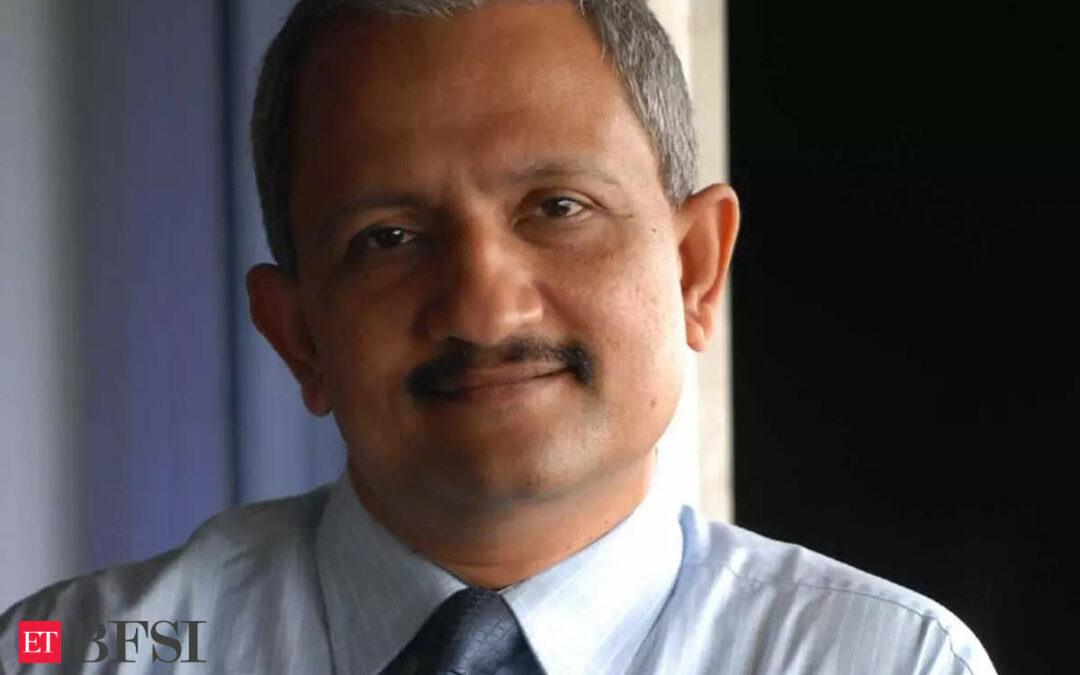Hailing Sebi’s move to start a new asset class to fill the gap between mutual funds and portfolio management schemes, PV Subramanyam, CEO, www.subramoney.com, says, “It is a fantastic move by SEBI because SEBI has acknowledged that people with Rs 10-15 lakhs are finding Rs 50 lakhs as a very big threshold to cross to enter PMS. So, yes, what SEBI says is right, many people were trying to run their own 10 lakhs, 15 lakhs unregistered PMS where you ran the risk that if something went wrong with the broker, you lost all your money. Now, at least the whole thing will be registered. So, it is a fantastic move. You will be allowed to do things like long-short. For example, a part of the money could be kept as a deposit and you would be allowed to short the share, which means sell a share which you do not have. Such things are not allowed in the mutual fund.”
Do help us understand how this new asset class that is being planned for rollout by SEBI is going to be different from the market options that currently exist as of now and how big is this investment opportunity?
Oh, I think it is a fantastic move by SEBI because SEBI has acknowledged that people with Rs 10-15 lakhs are finding 50 lakhs as a very big threshold to cross to enter PMS. So, yes, what SEBI says is right, many people were trying to run their own 10 lakhs, 15 lakhs unregistered PMS where you ran the risk that if something went wrong with the broker, you lost all your money. Now, at least the whole thing will be registered. So, it is a fantastic move. You will be allowed to do things like long-short. For example, a part of the money could be kept as a deposit and you would be allowed to short the share, which means sell a share which you do not have. Such things are not allowed in the mutual fund. Very clearly, you can take a derivative position but fairly obvious you cannot use the whole thing as a leverage. What I mean is you cannot take the 10 lakhs and take a 50 lakh derivative position. All your derivative position, equity position together should only be 10 lakhs. You cannot leverage and that is fair enough. In India, leveraging is not allowed, so that is a good thing. For the smaller PMS managers, if they are allowed into this, it is going to be very good because even if let us say the head of the family has 50 lakhs to put in a PMS, he may be willing to put 10 lakhs for each of his kids or 10 lakhs for his wife and thus create a bigger PMS portfolio. Also, they will allow your SIP into this. So, here you put 10 lakhs in the name of a kid and start putting 50,000 every month and create a bigger and bigger portfolio to be used for the kid’s education. Can you create such a product even without a scheme like this? Maybe very difficult. But today it is going to be very easy for a small PMS manager or whatever this product is going to be called to be able to create such things and even if somebody comes with 20-25 lakhs, 30 lakhs and then slowly increases it to 40-45 lakhs and 50 lakhs, then he can graduate him or her to the bigger PMS. I think it is a fantastic move. It really kills all the illegal PMSes which were running, which were a high risk thing. So, the risk is reduced and there is a big class of people, young professionals, 30-32 years of age earning about 25-30 lakhs, they can also come into it. I think it is a superb move.You mentioned about the minimum ticket size, so let me expand more on that question. If you could also delve a bit deeper into why this minimum investment size has been set at Rs 10 lakh, what do you think is going to have an impact? How do you think it is going to have an impact on the overall investments and what does it really mean for investor sentiment?
See, what happens today is everybody becomes an investor by putting even Rs 500. So, you do not want somebody with Rs 2000 and Rs 20,000 to come into a higher risk product. This is a slightly higher risk product because you are allowed to take what is called naked derivatives. You are not just taking it for hedging but you are taking a fresh position in this. So, it is for the slightly higher, I would not call HNI, but yes, maybe HNI (6:23) plus customer to come into this. Now, suppose let us say you have a crore of rupees to invest, 50 lakhs is too much to put in a PMS, then I would say no, no do not put 50 lakhs because you have only one crore. So, the PMS threshold may be 50 lakhs, but it was largely attracting the guy or woman with at least five crores because you did not want to put too much into one scheme. Now with 10 lakhs, it means even somebody with one crore can go and put 10 lakhs in a PMS and see how that person is performing. Within this 10 lakhs, you can have some equity, you can have some derivatives, you can have some mutual funds together, that whole package has to be 10 lakhs and you can keep adding maybe 50,000, one lakh every month. So, I think it is a fantastic place.I also want to understand from you on the kind of impact that it will have on businesses of mutual funds. Do you think AMCs will be interested in bringing in these products and if so, what is the demand that you predict?
Actually, more than the AMCs, of course AMCs will be interested in selling this because when a person goes and sells to one person he is asking for a bigger cheque. Otherwise, he goes and asks for a Rs 10,000 rupee or a Rs 50,000 SIP. So, it is attractive for the distributor to market this. Second, some people can of course come direct and it will be very attractive for the small PMS person. A PMS person with 50 crores or 1 crore or 100 crore kind of AUM, for him or her it will be attractive to sell such products to their own clients. A client who has got 50 lakhs PMS, like I said he could include other family members at 10-20 lakhs also. So, yes, the size of the market increases and like I said you can do long-short, you can take derivative positions. I mean imagine if you put 50 lakhs.
Let me also ask you about the regulatory measures that will be needed in place to ensure the safety of investments in this new asset class.
It would not change much. It will just be a cut paste of whatever is applicable to the PMS. They will just make it applicable here. I do not think there will be too much leeway into this. So, in a PMS whatever you can do you will be allowed to do in this. Right now, it is a consultative paper. I do not think they will go down much in terms of regulation. They would not want to increase the risk like that. So, I guess the same rules and regulations which is applicable to PMS will be applicable here, so that is better and like I said you are allowed to do SIP in this which means the size of the market can increase. You are allowed to put in an index fund. You are allowed to take a derivative position. I think all these things are very good. There is a market, the HNI market, slightly under the HNI market who be interested in this and yes, I think everybody will be excited. Smaller AMCs may be interested in this, the bigger AMCs may not be interested.
That definitely speaks volumes about the fact that India is finally opening up to different investment products, styles and in fact approaches. So, there you have the passive factor, inverse ETFs, alts and even more and there is no single way to invest. That speaks volumes about the kind of market opportunity that lies at present in India.
Right absolutely and somebody is tapping it very sensible to keep the limit at 10 lakhs and not at 25 lakhs or something like that. So, you can grow investor from 10 to 40-45 and then take it to the other PMS. So that way it is a good route to get a person started at 10, slowly increasing it over three-four years, the market will also do well and he does a (10:04) say a Rs 1 lakh SIP, over three years he will move into a 50 lakh regular PMS. It is easy for him to come in through route like this instead of directly trying to put 50 lakhs in the PMS. It is a very good route.
(Disclaimer: Recommendations, suggestions, views, and opinions given by experts are their own. These do not represent the views of the Economic Times)










